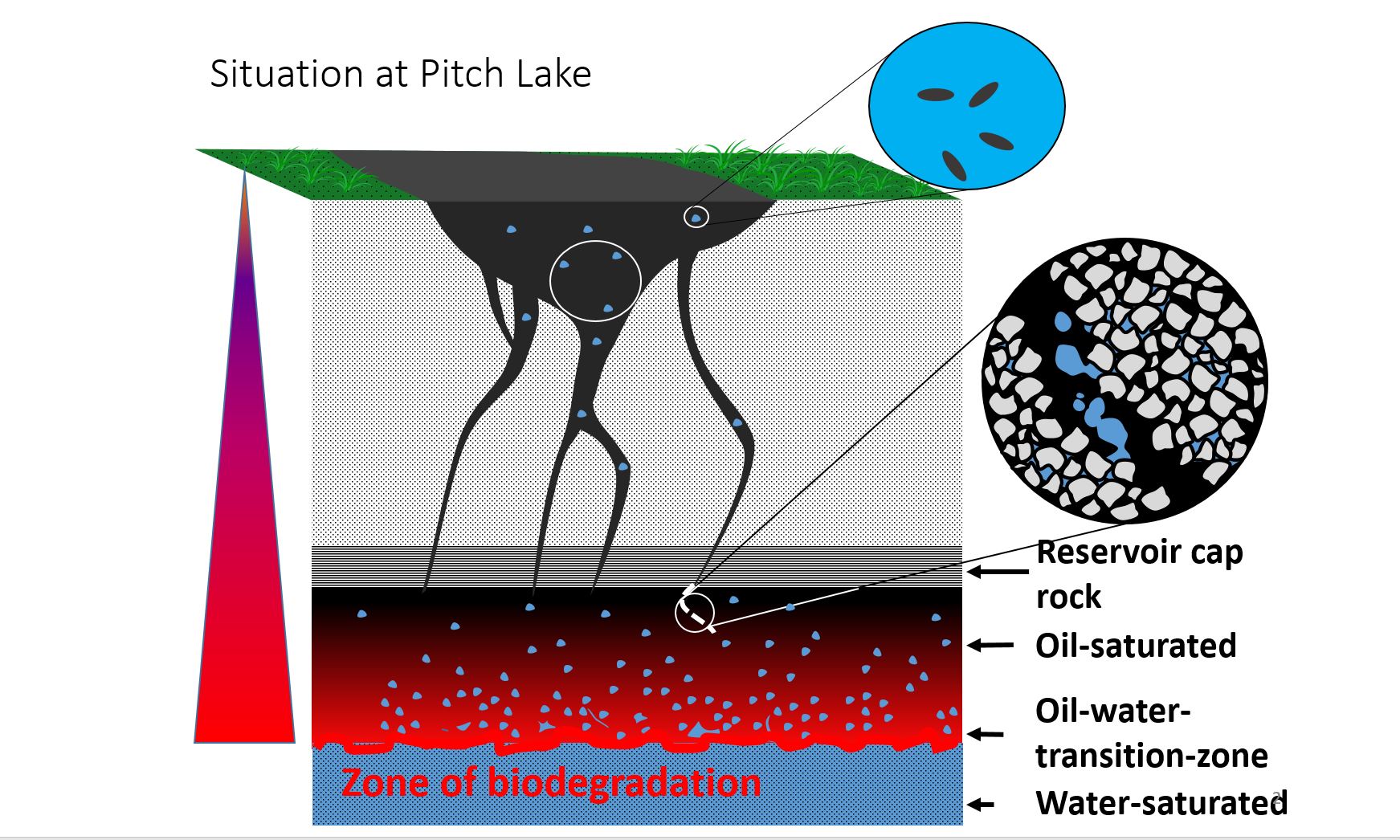Webinar: Microbial life in small water droplets enclosed in oil

Welcome to 2021 first webinar from Petroleum Systems Network Group featuring Rainer U. Meckenstock from the University of Duisburg-Essen, Germany. The topic is Microbial life in small water droplets enclosed in oil.
| Date | Time | Duration | Register by | Location |
| 28.01.21 | 10:00 | 60 min | 27.01.21 | Teams |
Abstract
Microbial life in small water droplets enclosed in oil
Rainer U. Meckenstock, University of Duisburg-Essen, Germany
Microbial degradation of oil reservoirs is mostly taking place at the oil-water transition zone between the oil leg and the underlying water leg (OWTZ). However, we recently found microbial life in small water droplets dispersed in oil of the Pitch Lake in Trinidad, the world’s largest natural tar lake. The water droplets were surprisingly densely populated with a very complex and divers microbial community. FT-ICR measurements of the µL size droplets suggests that the organisms are actively degrading the oil as signature metabolites for anaerobic degradation of polycyclic aromatic hydrocarbons were identified. Stable isotope analysis of the water proofed a deep subsurface origin of the water droplets implicating that they came directly from the below oil reservoir. We could find such microbe-containing water droplets in three different natural oil seeps indicating that they are a generic feature of oil reservoirs. The finding of life in the water droplets indicates that biodegradation can not only take place at the OWTZ but also in water pockets in the oil leg.
Furthermore, we developed a new method to analyse biodegradation of oil in microcosms (reverse isotope labelling) which was used to measure the anaerobic degradation of Trinidad oil. The method allowed for quantification of the evolved CO2 and the determined degradation rates were taken to calculate the possible contribution of the water droplets to the overall biodegradation in the oil, which agreed with the geological time frames of oil degradation.
We furthermore analysed the microbial community compositions in hundreds of single water droplets. This allowed for developing a conceptual theory on the assembly of the microbial ecosystems and how core microbial communities establish in such settings.
How a webinar works
You register as usual through the registration button above. Once you are registered you will get an invitation via email to join this webinar.
FORCE uses Teams Video for this webinar, and has proven to work successfully.
We recomment that everyone joining turn off their camera and microphone when joining.
If you have any questions you can use the chat or wait until the end of the talk.
FORCE seminars have previously been fully booked with waiting lists so you are encouraged to sign up as soon as you know you will attend.
Participation fees:
FORCE members: Free
Non-members: NOK 350,-
University/student: Free
Important information:
You can register as a FORCE member and pay "FORCE member" price if you are an employee of a member company.
All FORCE member companies are listed here.
Payment is made online by credit card. Please note that no refunds will be given after you have signed up.
If you for any reason can not attend the workshop, you are welcome to send a representative, just inform Linn Smerud as soon as there are changes.
If you have any questions please contact Linn Smerud at the FORCE secretariat.

Updated: 28/01/2021
